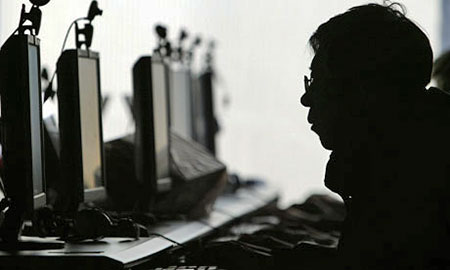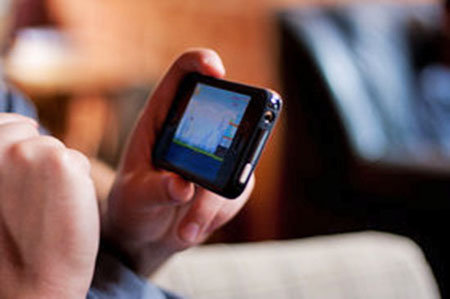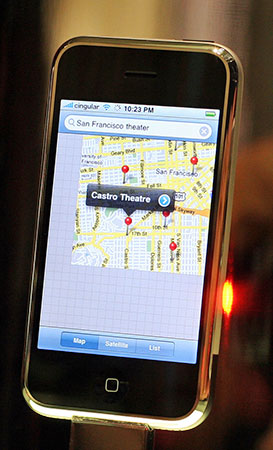
by Sarah Lazare
staff writer
January 27, 2014
from
CommonDreams Website
NSA docs exposed by Snowden
reveal British government
gave lessons to US on cyber
surveillance

(Photo: AP)
The British government gave the U.S. lessons in how to spy on users of
popular websites, including Youtube
and Facebook, in real-time and without the
consent of users or cyber companies.
This is according to a report released Monday afternoon by a team of NBC
journalists, including Glenn Greenwald who is listed as a special
contributor, based on NSA documents exposed by whistleblower
Edward Snowden.
The report unearths a slide presentation (Psychology
- A New Kind of SIGDEV) by British intelligence agency
GCHQ, given to their U.S. counterparts in
August 2012, detailing their "Squeaky Dolphin" program that allows them to
glean information from,
"the torrent of electronic data that moves
across fiber optic cable and display it graphically on a computer
dashboard," according to the NBC article.
Documents taken from
the NSA
by Edward Snowden and obtained by NBC News detail how British cyber spies
demonstrated a pilot program to their U.S. partners in which they were able
to monitor YouTube in real time.

In the slides, published by NBC, GCHQ officials tout their abilities to
conduct,
"Broad, real-time monitoring of online
activity of: Youtube Video Views, URLs Liked on Facebook, and Blogspot/Blogger
Visits."
While the presenters stated that the program was
for purposes of identifying broad trends, not individual information, NBC
journalists say they were told by cyber experts that,
"once the information has been collected,
intelligence agencies have the ability to extract some user information
as well."
Spokespeople from Facebook
and Google said they were not aware that governments were
surveying this information and they had not granted permission.
GCHQ is apparently not the only agency wielding these online surveillance
tools.
The NBC report states,
"According to a source knowledgeable about
the agency's operations, the NSA does analysis of social media similar
to that in the GCHQ demonstration."
The report comes the same day as revelations
of NSA and GCHQ (below report) spying on personal data leaked from
smartphone apps.
NSA, GCHQ Using Data
...from
'Leaky' Smartphone Apps to Spy
by Andrea Germanos
staff writer
January 27, 2014
from
CommonDreams Website
"Golden Nuggets"
to gather data
include
Google Maps, Angry Birds,
uploading
photos to social media sites...
As part of their arsenal of spying tools, the
National Security Agency and its British counterpart, the GCHQ, are sucking
up personal data leaked from smartphone apps, according to documents
provided by NSA whistleblower
Edward Snowden.

One of the apps the NSA and GCHQ used
to gather data is the popular
game "Angry Birds."
(Photo: Jared Cherup/cc/flickr)
The newest global surveillance revelations made
possible by Snowden were published Monday in a partnership of the
Guardian, the
New York Times and
ProPublica.
Smartphone users may have numerous apps on their phones to play games,
navigate and use social networking sites, but these data-using and
data-gathering tools also appear to be providing a treasure trove of
information for the NSA and GCHQ to exploit.
According to their reporting, the spy agencies collaborated to work out how
to best obtain and store all the data, which could include,
-
users' age
-
geolocation
-
sexual orientation
-
address books
-
marital status
-
number of children,
...and other personal information - from the
burgeoning number of from iPhone and Android apps.
One app GCHQ specified as being amongst its targets for gathering data is
the
popular game AngryBirds, while a 2010 slide
from the NSA seen by the news agencies titled "Golden Nugget!" says that a,
"target uploading a photo to a social media
site taken with a mobile device" is a "perfect scenario."
The Guardian reports:
In practice, most major social media sites,
such as Facebook and Twitter, strip photos of identifying location
metadata (known as EXIF data) before publication.
However, depending on when this is done
during upload, such data may still, briefly, be available for collection
by the agencies as it travels across the networks.

(Photo: niallkennedy/cc/flickr)
Another goldmine app for surveillance listed was
Google Maps.
From the Times and ProPublica:
Intelligence agencies collect so much data
from the app that,
"you'll be able to clone Google's
database" of global searches for directions, according to a
top-secret N.S.A. report from 2007.
"It effectively means that anyone using
Google Maps on a smartphone is working in support of a G.C.H.Q.
system," a secret 2008 report by the British agency says.
The pathways for the NSA and GCHQ to gather all
this app data was already established, ProPublica and the Times explain:
The agencies have long been intercepting
earlier generations of cellphone traffic like text messages and metadata
from nearly every segment of the mobile network - and, more recently,
mobile traffic running on Internet pipelines.
Because those same networks carry the rush
of data from leaky apps, the agencies have a ready-made way to collect
and store this new resource.
The documents did not reveal how many users were
affected or how often the collection took place, nor did they state that
companies provided the user data to the spy agencies.
Part of a statement from the NSA provided to the Guardian said,
"We collect only those communications that
we are authorized by law to collect for valid foreign intelligence and
counterintelligence purposes - regardless of the technical means used by
the targets."





